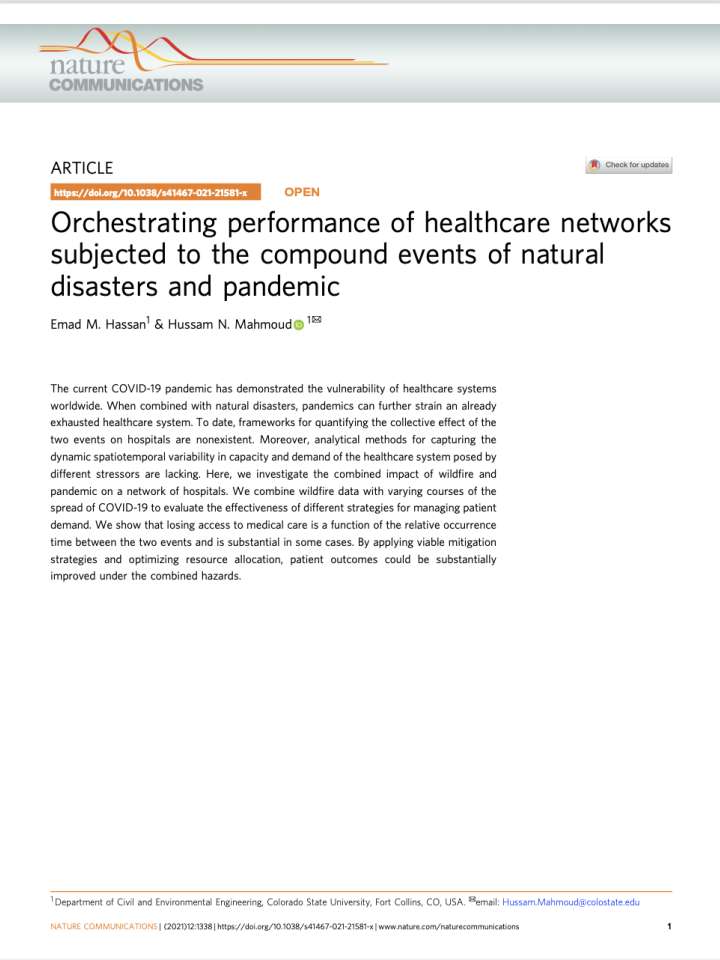Orchestrating performance of healthcare networks subjected to the compound events of natural disasters and pandemic
This paper examines the orchestrating performance of healthcare networks subjected to the compound events of natural disasters and pandemic. The current COVID-19 pandemic has demonstrated the vulnerability of healthcare systems worldwide. When combined with natural disasters, pandemics can further strain an already exhausted healthcare system. To date, frameworks for quantifying the collective effect of the two events on hospitals are nonexistent. Moreover, analytical methods for capturing the dynamic spatiotemporal variability in capacity and demand of the healthcare system posed by different stressors are lacking.
This paper investigates the combined impact of wildfire and pandemic on a network of hospitals. The report combines wildfire data with varying courses of the spread of COVID-19 to evaluate the effectiveness of different strategies for managing patient demand. The study shows that losing access to medical care is a function of the relative occurrence time between the two events and is substantial in some cases. By applying viable mitigation strategies and optimizing resource allocation, patient outcomes could be substantially improved under the combined hazards.
Explore further
